Biochemical Genetics
Contact the Biochemical Genetics Program
What are biochemical genetic disorders?
Inherited conditions that disrupt how the body makes or uses proteins, fats or carbohydrates are called . Other names for these are “inherited ” or “inborn errors of metabolism.”
In a process called metabolism, chemical reactions in the body’s cells break down nutrients and make energy. These reactions may also change 1 chemical to a different chemical the body needs. In children with inherited metabolic disorders, 1 or more changes in a lead to a problem with 1 of these chemical reactions. This can cause symptoms that range from mild to life-threatening.
Why choose Seattle Children’s Biochemical Genetics for your child’s care?
Our Biochemical Genetics team provides a long-term "medical home" for babies, children and young adults with known or suspected inherited metabolic disorders. We care for your child and help your family manage your child’s disease, with support and resources to improve their quality of life. Seattle Children’s has one of the largest pediatric genetic medicine programs in the country.
Children with inherited metabolic disorders often have complex needs. Experts from different specialties will work together to diagnose your child, treat urgent problems, create a care plan and provide long-term follow-up. Our team coordinates your child’s care, with referrals to medical specialists across Seattle Children’s. We also work with providers in your community so your child gets the right care at the right time. We offer clinical trials of new treatments that may benefit patients with rare metabolic disorders.
Our team serves children, teens and young adults in the Washington, Wyoming, Alaska, Montana and Idaho (WWAMI) region.
Early diagnosis and treatment for biochemical genetic disorders can improve your child’s quality of life. The Washington state Department of Health screens newborns for some of these diseases. We work with them to provide any follow-up genetic testing and care your newborn may need.
Identifying his genetic condition before birth allowed Colton to get treatment starting the day he was born. He has VLCAD, which impairs the body’s ability to use long-chain fats for energy.
Among the nation’s top centers for rare diseases
Seattle Children’s is the only pediatric hospital in the Pacific Northwest named a Rare Disease Center of Excellence by the National Organization for Rare Disorders (NORD). At NORD Centers of Excellence, experienced teams of world-class doctors diagnose and treat a wide range of rare diseases. Our Biochemical Genetics clinic includes centers of excellence for Wilson disease, congenital disorders of glycosylation and lysosomal storage disease.
Seattle Children’s is also part of the Undiagnosed Diseases Network (UDN), funded by the National Institutes of Health. We partner with other UDN members to improve diagnosis and care for patients with hard-to-diagnose diseases.
To make a precise genetic diagnosis, we use information from your child’s medical and family history, physical exams and state-of-the-art genetic testing. Our genetic counselors will explain the test options and what to expect. If you choose to have testing, our counselors help your family understand what the results mean for your child and other family members. Read more about genetic testing (PDF).
Research to gain insights and advance care
Genetics is one of the fastest-changing areas in medicine, as researchers continue to pinpoint the genes that cause a wide array of disorders. Seattle Children’s researchers work to identify genetic causes of disease and create new ways to test for them. Identifying the precise genetic cause of a disorder can open the door to more treatment options and help develop new ones. Our patients have access to of promising new treatments.
We invite our patients to take part in , studies and that collect medical information about children with genetic conditions. By combining information from many children with the same rare disease, we can look for patterns and gain insights for better diagnosis and treatment.
Our program is part of the University of Washington fellowship program in Medical Biochemical Genetics, which is certified by the American Board of Medical Genetics and Genomics.
Inherited Metabolic Disorders We Treat
There are hundreds of genetic disorders related to metabolism. We treat these and many others.
-
Fatty acid oxidation disorders
Children with these disorders cannot use fats for energy. This can lead to low blood sugar, muscle weakness and heart problems. Medicines and special diets can treat many of these disorders. Examples are:
- Medium-chain acyl-coenzyme A dehydrogenase (MCAD) deficiency
- Very long-chain acyl-coenzyme A dehydrogenase (VLCAD) deficiency
-
Congenital disorders of glycosylation (CDG)
Many building blocks of the body, such as proteins, fats and other molecules, need to have sugars attached to them to work correctly. People with congenital disorders of glycosylation (CDG) cannot attach these sugars or sugar chains properly. Your child may have problems with growth and learning. The disorder may affect many parts of their body, including their brain, nerves, muscles, liver and . Examples of CDGs include PMM2-CDG, ALG1-CDG, PIGT-CDG and MPI-CDG. In a disorder called NGLY1-CDDG, the body has trouble taking sugar chains off some proteins. Our clinic includes a Congenital Disorders of Glycosylation Center of Excellence.
-
Disorders of carbohydrate metabolism
Carbohydrates are a key part of our diet that provide energy. Problems with how a child’s body breaks down or uses carbohydrates can cause a harmful amount of carbohydrate to build up in their body. This can lead to health problems. Examples include:
- Glycogen storage disorders, a problem with how the body stores or breaks down glycogen
- Galactosemia, where the body cannot properly break down a sugar molecule called galactose found in dairy products
-
Lysosomal storage disorders (LSDs)
In these disorders, complex sugars build up in small sections inside cells, called lysosomes. The buildup makes the cells swell and stops the cells from working right. The different lysosomal storage disorders (LSDs) affect different body systems and cause different symptoms. Some LSDs can be treated. Our clinic includes a Lysosomal Storage Disorder Center of Excellence.
Examples of LSDs are:
- Gaucher disease
- Pompe disease
- All types of mucopolysaccharidosis (MPS)
- Morquio syndrome
- Fabry disease
- Tay-Sachs disease
-
Mitochondrial disorders
These disorders affect how the body makes energy. They can involve many body systems. Most often they affect the heart, brain and muscles. Examples include:
- Mitochondrial encephalomyopathy lactic acidosis and stroke-like episode (MELAS)
- Alpers disease
- Barth syndrome
- Leigh syndrome
- Respiratory chain complex deficiency
Read about Seattle Children’s Mitochondrial Medicine and Metabolism Clinic.
-
Peroxisomal disorders
Peroxisomes are part of the cell that are key to biochemical reactions such as metabolizing fatty acids and making lipids. In these disorders, either the body does not make peroxisomes or they do not work right. The disorders can affect many body systems. Most often they involve the eyes, brain, liver, kidneys and bones.
Examples include:
- X-linked adrenoleukodystrophy
- Zellweger spectrum disorders
- Refsum disease
-
Organic acid disorders
Children with these disorders cannot use protein for energy. This can cause toxic acids to build up in their bodies. They may then have problems with growth, learning and overall health. Medicines and special diets can treat many of these disorders. Examples of organic acid disorders are:
- Propionic acidemia (PA)
- Methylmalonic acidemia (MMA)
- Glutaric acidemia types I and II
-
Amino acidopathies
Amino acids are "building blocks" that join together to form proteins. Children with an amino acid disorder may have trouble breaking down certain amino acids or getting the amino acids into their cells. These problems cause a buildup of harmful substances in the body and can lead to serious health problems.
-
Urea cycle disorders
Children with these disorders cannot use protein properly for energy. This can cause toxic by-products to build up in their bodies. The buildup can lead to problems with growth, learning and overall health. Medicines and special diets can treat many of these disorders.
Examples of urea cycle disorders are:
- Ornithine transcarbamylase (OTC) deficiency
- Arginase deficiency
- Citrullinemia
-
Disorders of purine and pyrimidine metabolism
Purines and pyrimidines form the bases of our DNA, help with our body’s immune response and help the cell make energy. Children with a purine or pyrimidine metabolism disorder could have problems with their learning, behavior, or growth. They may have and react to certain medications. Lesch-Nyhan disease and adenylosuccinase deficiency are examples of these disorders.
-
Wilson disease and other disorders of metal metabolism
Children with Wilson disease cannot get rid of copper they get from food but do not need. Most children's bodies filter out this extra copper. But in children with Wilson disease, the copper builds up and can damage their liver, brain and other organs. Medicines and diet changes can treat Wilson disease if it is diagnosed early.
Our clinic includes a Wilson Disease Center of Excellence. Dr. Sihoun Hahn, co-director of our Wilson Disease Center of Excellence, has created a test to detect this condition. He is working to have the test included in newborn screening so babies can be treated before the disease causes harm. Read more in Healthy Tides.
Services We Provide for Inherited Metabolic Disorders
-
Metabolic assessment and management
Many children born with metabolic diseases need lifelong care. This helps them do the best physically and mentally and have the highest possible quality of life.
We give your child a full diagnostic evaluation and comprehensive care. This includes:
- Testing for newborns who have abnormal results from Washington state newborn screenings
- Complete nutritional assessments
- Long-term metabolic management along with dietary treatments
- Genetic counseling for children and adults with suspected or diagnosed inherited metabolic disorders
- Connecting you and your family to resources in our hospital and community
- Support from social workers to help you and your child adjust to and cope with having a lifelong metabolic disease
-
Enzyme replacement therapy
Some metabolic diseases happen because a child has an that is not normal. This causes sugars and proteins to build up in the body. In enzyme replacement therapy (ERT), we give your child the enzyme they need through an line. This process is called infusion.
ERT treats the symptoms of the disease but does not cure the disease. It helps treat some lysosomal storage disorders:
- Gaucher disease
- Fabry disease
- MPS I
- MPS VI
- Glycogen storage disease type II (or Pompe disease)
-
Nutrition therapy
Nutrition therapy is often the cornerstone of medical treatment. Our and doctors partner to provide the best nutrition plan for each patient. We tailor a nutrition plan for your child to:
- Help them achieve their full growth and development
- Provide the nutrients they need
- Modify carbohydrates, proteins or fat (macronutrients) as needed for their disorder
We teach your child and family about their nutrition plan and provide support. We help manage diets by mouth, through feeding tubes or by IV into a vein if needed during acute illness.
Scheduling an Appointment With Biochemical Genetics
If you would like an appointment, ask your primary care provider or specialist to refer you to Seattle Children’s Biochemical Genetics.
- If you have a referral, call 206-987-3012, option 1 to make an appointment.
- Learn about how to prepare and what to expect.
- See genetic medicine resources such as useful links, videos and recommended reading for you and your family.
- Learn more about how to schedule an appointment at Seattle Children’s.
Providers, see how to refer a patient to Biochemical Genetics.
Biochemical Genetics Team
Leadership
-
Division Chief
-
Medical Director, Biochemical Genetics; Program Director, Medical Biochemical Genetics Fellowship
Teams
Doctors
Registered Dietitians
-
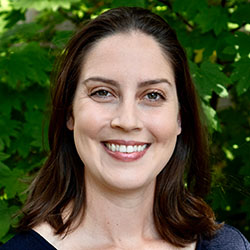
Sarah Bell, MPH, RDN, CD, CNSC
-
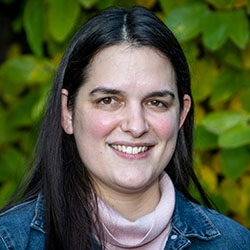
Erin Phelps, MS, RDN, CD
-
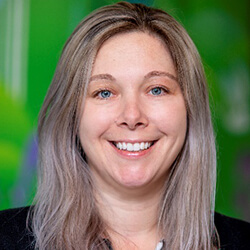
Holly Johanna Stevens, MS, RDN, CD
Registered Nurses
-
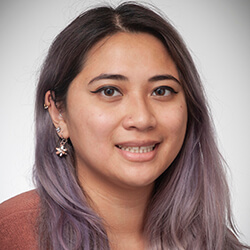
Bernice Cristobal, RN, BSN
-
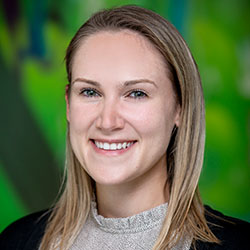
Kasea Harbachuk, RN, BSN
-
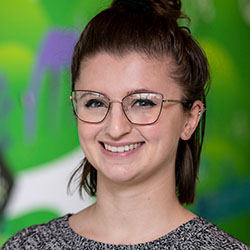
Olivia Moore, MBA, BSN, RN
Clinical Research Coordinators
-
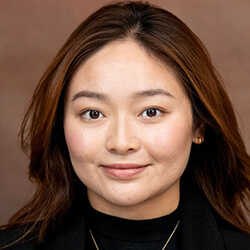
Phi Duong, BS
-
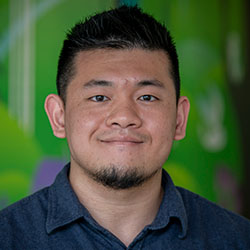
Seishu Horikoshi, MBA
-
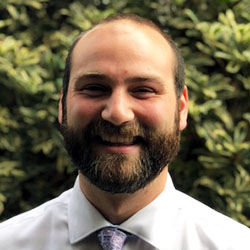
Hayden Vreugdenhil, BS
Contact Us
If you would like an appointment, ask your primary care provider or specialist to refer you to Seattle Children’s Biochemical Genetics Clinic. If you have a referral, contact us at 206-987-3012, option 1 to make an appointment.
Providers, see how to refer a patient to Biochemical Genetics.
Participate in Research
We invite children and their families to participate in our studies. By taking part in a research study, your child will have access to some of the latest treatments and will receive support and care from our research team. Participation is voluntary. Your child will receive the same quality care whether or not you participate.
Telemedicine at Seattle Children’s
You may be offered a telehealth (virtual) appointment. Learn more about telehealth visits.
Paying for Care
Learn about paying for care at Seattle Children’s, including insurance coverage, billing and financial assistance.
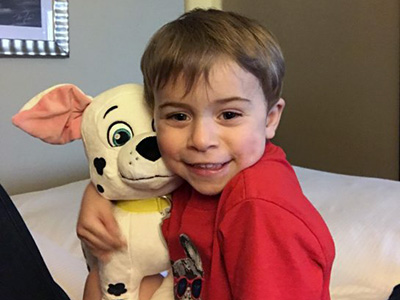
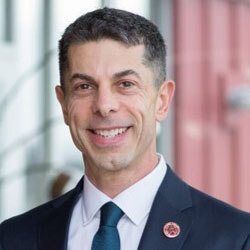
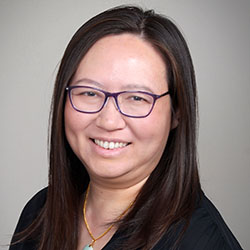
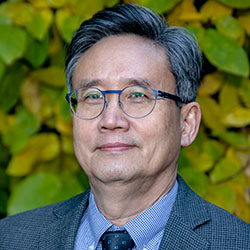
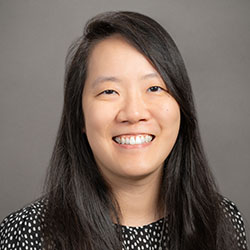
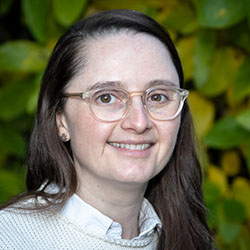
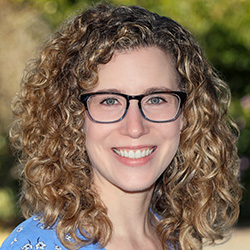
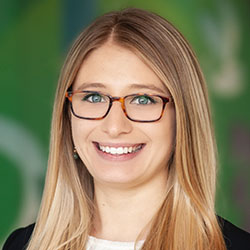
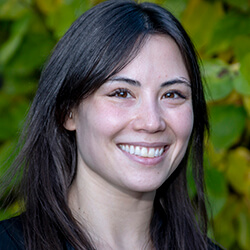
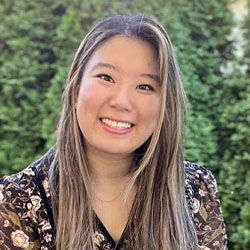
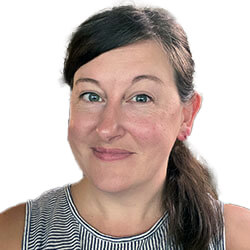
Social Worker
Gailon Wixson, MSW, LICSW
Back to Top